Interview Thair Abud – Long-distance hiker – From Kapp to Cape on foot
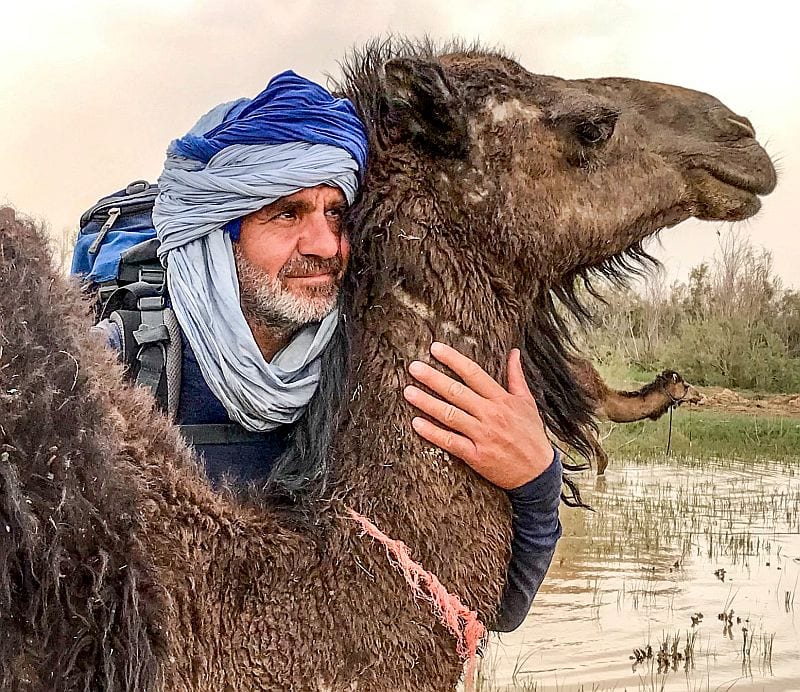
Thair Abud
55 years old Austrian structural engineer & long-distance hiker fromkapptocape.com
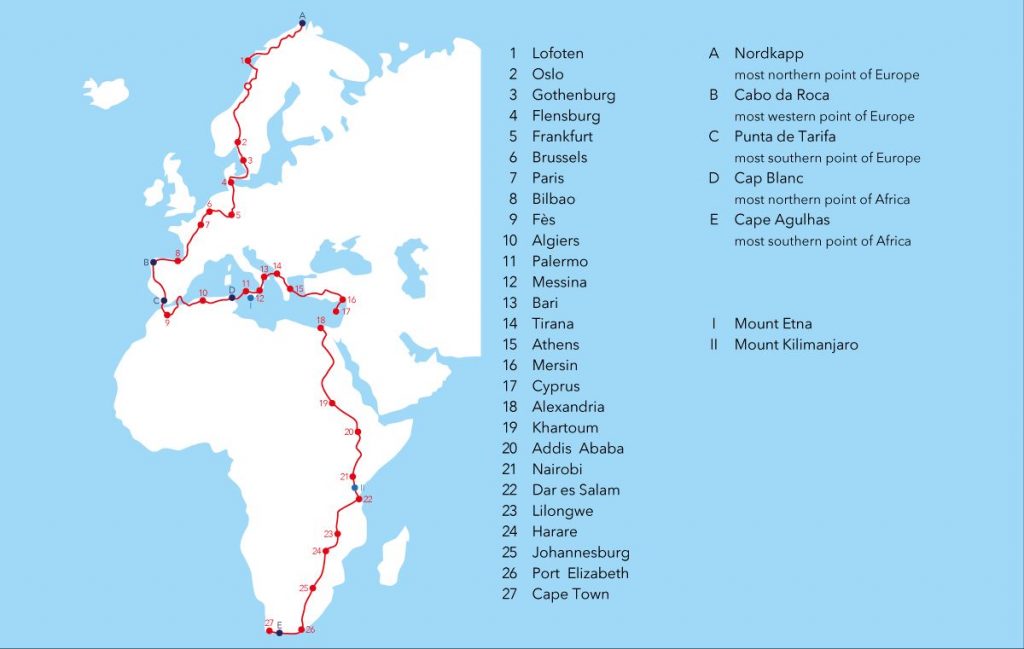
1. Thair, you are hiking from the North Cape to the Cape of Good Hope in South Africa. It is fair to say that this is a very long walk, and I think your trip is awe-inspiring!
How did you develop the idea, what’s behind it, and why are you walking?
My walk from the Nordkapp (North Cape) to South Africa has a long history and many factors played a part before I was able to set out on my journey in April 2018. Distraction played a big part in this.
It started when I quit smoking in 2012 and wanted to take my mind off of my smoking cravings by walking around the block. The walk got longer and longer and I rediscovered the use of my legs.
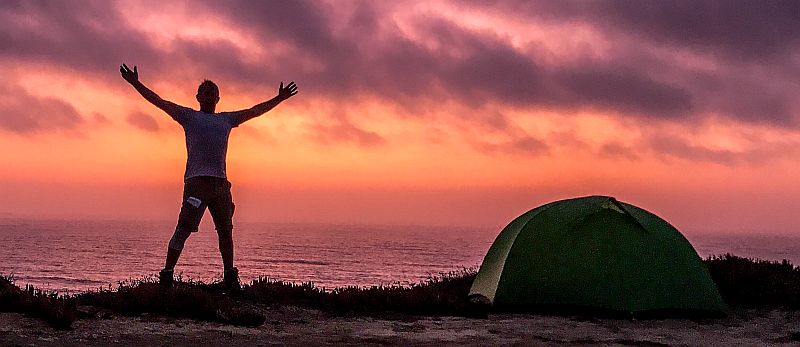
The journey has given me the most beautiful feeling of happiness and freedom as well as the conviction that I never want to live any other way.
I have already experienced so much, learned so much. Our world is beautiful and the people in this world are so great, everywhere!
A few months later, my sister Zaussen was diagnosed with breast cancer and I contemplated how I could support her. Since I had just experienced through the walking stints that it is possible to distract oneself from one’s own thoughts when another stimulus is set against these, I wanted to try this with my sister and distract her from her pain.
I decided to walk the Way of St. James from Graz to Santiago di Compostela and to let Zaussen know what I had experienced by contacting her every single day. The distraction worked. She waited eagerly for my reports every evening, was actively involved in planning the route and definitely gained new courage to face life.
When I arrived in Finisterra after 102 days and 3,250 kilometers, my sister had completed her chemotherapy.
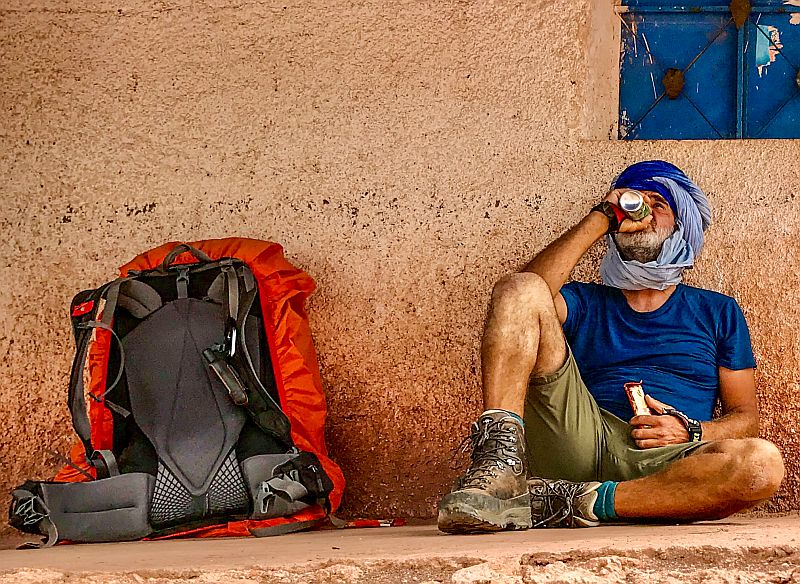
On the way I had many desperate moments: There were many times along the way where I was in anguish. I had pains all over my body from the unaccustomed strain as I was quite untrained. I was at the mercy of my thoughts and wondered what I was actually doing here, what I was trying to accomplish,
I was afraid for my sister and in one of these dark moments I turned my gaze to heaven and called on a nameless God and promised to walk to Mecca if Zaussen survived and if I arrived safely in Finisterra.
Eight months later, I made good on the promise and walked from Graz to Mecca. That was a journey of ten months, 13 countries and 8,670 kilometers.
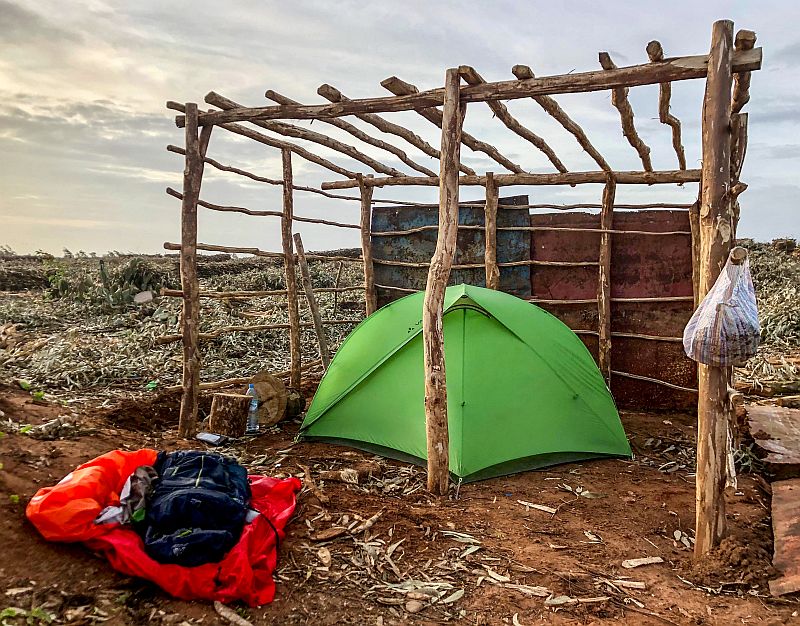
When I got back to Austria I experienced a culture shock.
I experienced civilization as something that seemed to no longer fit for me.
I felt trapped in the system, locked in between walls, caged in and thought that if I changed my life, it would get better again.
I went to university again, changed almost everything in many aspects of my life, but came to realize quite soon that I still wasn’t happy.
When I was finally brave enough to search for the answer, I asked myself “what would make me happy?” and the answer was “walking”.
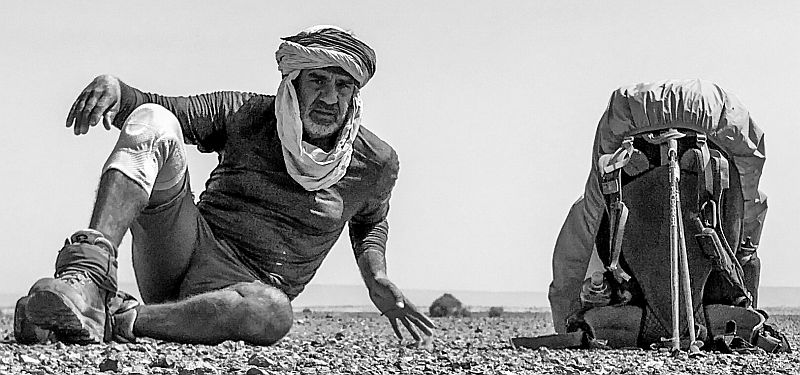
And so I hung up a map and started making plans. The destination didn’t really matter, as long as the journey was a long one. At some point I found the route from Nordkapp (the North Cape in Norway) to Cape Town, an estimated 26,000 kilometers which would therefore mean it would be a walk that would take 3 years.
And I thought: that’s good, that’s long enough.
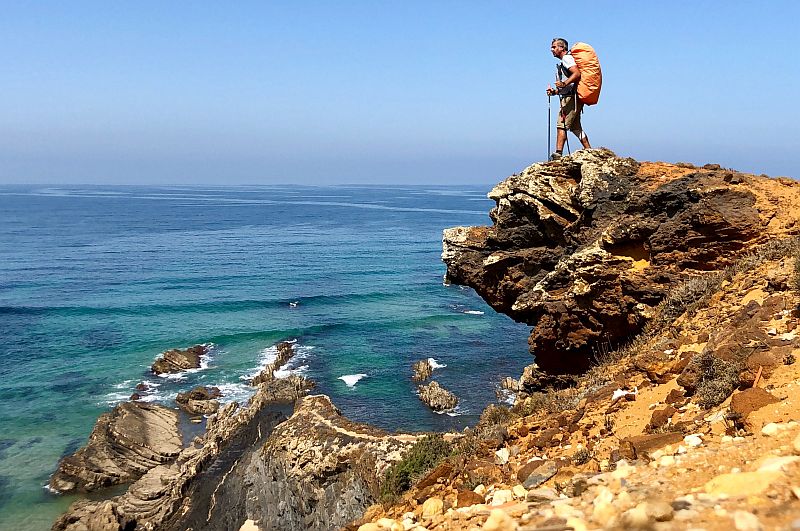
Walking for me is freedom and happiness.
That was in January 2018 and by the end of April 2018 I was ready to fly to Nordkapp and start the journey from there. In the meantime, I have now been on the road for 19,000 kilometers.
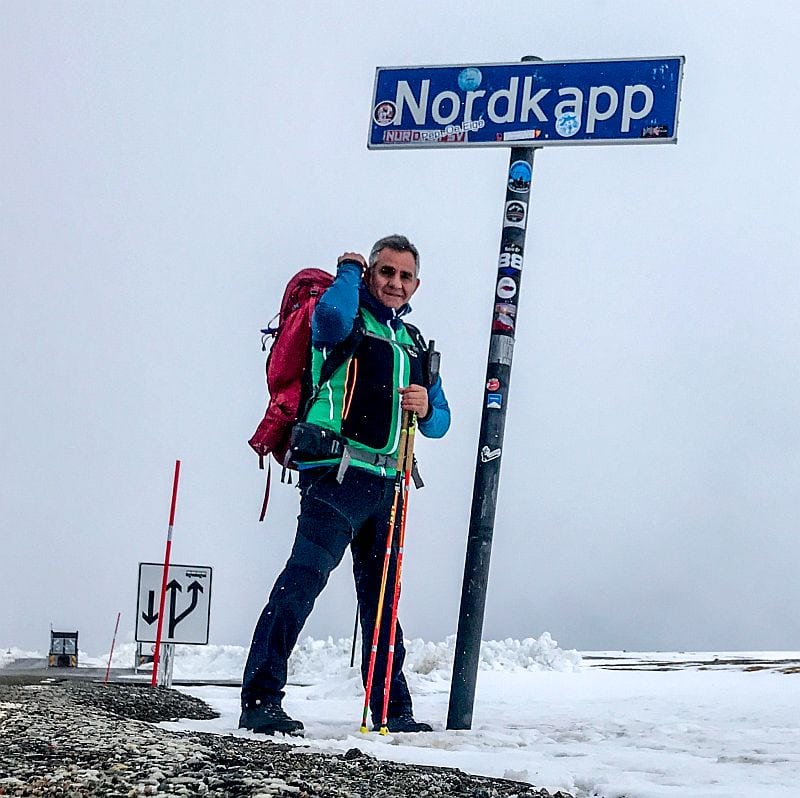
Of course, I also thought about connecting this trip with a charitable cause and not only undertaking this adventure to just make myself happy. For this reason, I went all the way back to the beginning – the distraction.
The influence of that mental state at the very start and the will to live and overcome a serious illness. The worldwide Red Noses movement takes such an approach, using humor and laughter to positively influence the course of a disease, especially in children.
I collect donations on my way for a Red Noses project in Dar es Salaam, "Doctor Clown Tanzania", which finances clowns to visit children with cancer in hospitals.
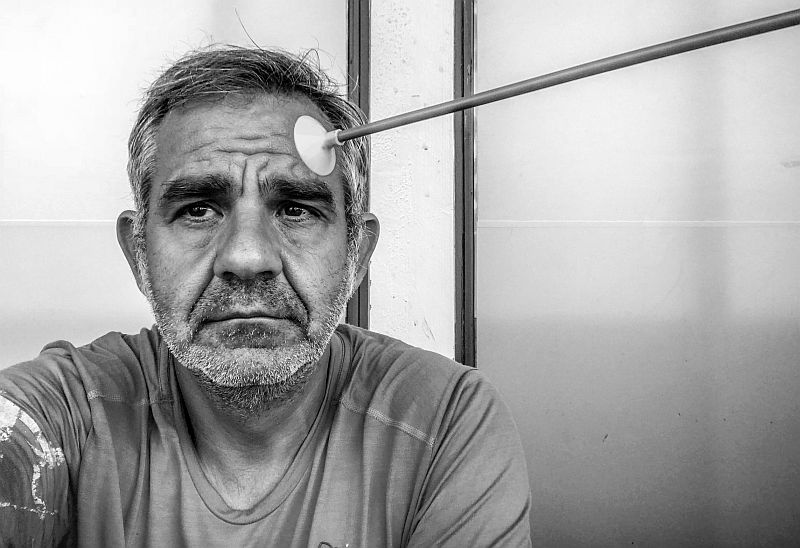
2. How would you describe yourself? Who do you have to be to create such a forced march?
I would say that I have a strong will, that I trust myself, that I am independent, free in making my decisions. I am ready to take on responsibility, I am flexible, optimistic, people-friendly. I can take things as they come and don’t want try to adapt them to me.
I think that anyone who wants to and who decides to do so can create a project like this.
When the decision has been made, the most important thing is that the first step has to be taken. Then the fear has already been overcome and that is what really counts. And then, after that, all you have to do is to be yourself and, most importantly, trust yourself.
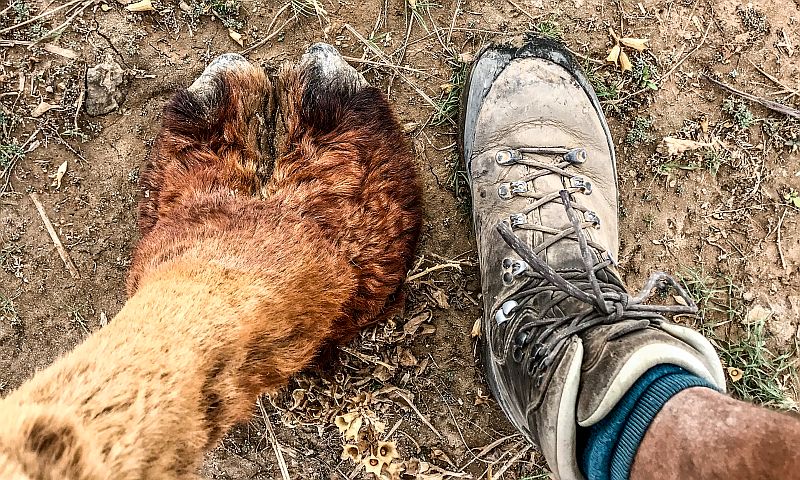
Meanwhile, I have reached a point where I trust myself to accomplish anything.
3. Many hikers today hike ultralight, i.e., they keep their loads as light as possible. Your backpack is more of the “old school variant.”
What do you have with you? Are there any pieces of equipment that you would sometimes like to put aside to lighten your load, but in the end, you can’t part with them?
Yes, I travel “old school”. Old school has the advantage over lightweight that the products with stronger materials are more durable and, quite often, also cheaper.
Saving a few grams is expensive. One of the most important things on my journey is that I can rely on my equipment because I am not always in areas where everything can be replaced immediately.
However, I also have some lightweight items with me, for example my tent and the sleeping mat. The backpack itself is strong and durable (lasts around 8,000 km) and weighs around 4 kilograms without its contents, and around 17 kilograms when loaded without water and food.
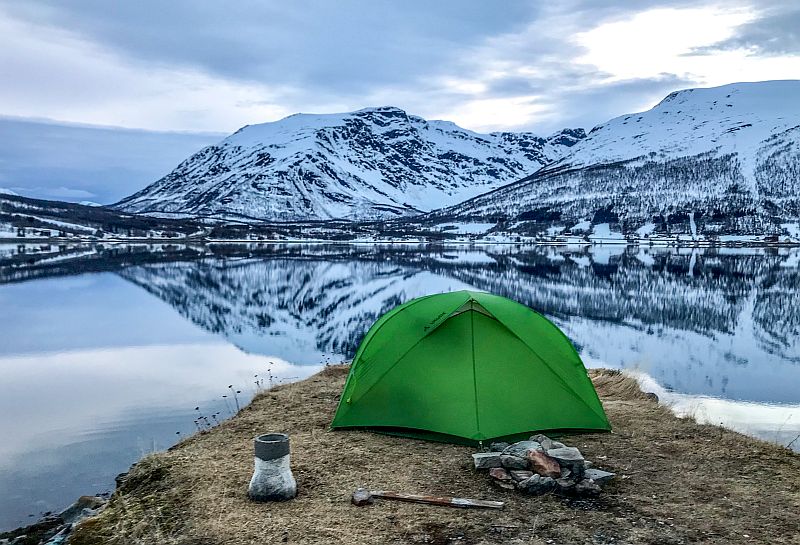
I have checked and adjusted the packing list again and again in the almost 3 years that I have now been on the road. Some things have been added and others have been removed. Right now it is quite suitable for my needs, although I can imagine that in Africa a mosquito net might be added and the sleeping bag replaced by a thinner one.
Since I carry everything on my back, I am actually very critical of what can be put in the backpack.
Nevertheless, there are non-essential things that I actually carry with me as well, for example my diary or a map made of paper or my stamp pass. These things are focal points for me and give me stability and structure. They are the most personal things in my backpack.
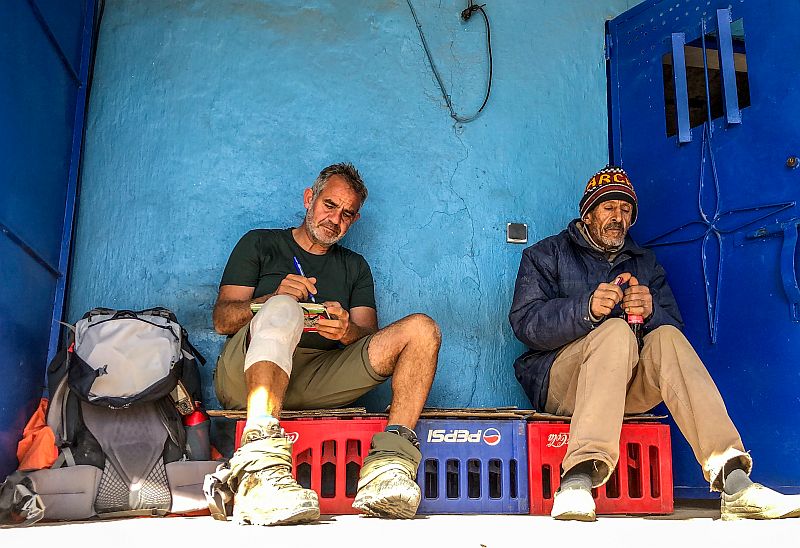
Wearing
Mountaineering boots
Nylon socks
Wool socks
Pants with detachable legs
Belt
Short-sleeved shirt
Long-sleeved shirt
Buff
Trekking poles
Backpack
GPS
cell phone with a good camera
Sleeping
Tent
Mat
Sleeping bag
Hygiene
Toiletry bag
First aid kit
Toiletry case
Clothes line
Towel
Clothes
Amphibian shoes
swimming trunks
pyjama pants
short-sleeved shirt
long-sleeved shirt
pullover
jacket
rain poncho
rain pants
woolen hood
gloves
nylon socks
wool socks
Office
Vaccination certificate
Passport
Credit card
Diary
Stamp pass
Pen
scissor
2 power banks
Power supply with 5 USB outputs
Miscellaneous
day pack
head lamp
Knife with whetstone
Carabiner
Replacement shoe insoles
Shoe impregnation spray
Tape
Can of fish (emergency ration)
Water bottle
Umbrella
4. . I have read that your daily distance record in 2020 was 95 kilometers – a fantastic achievement!
What is your main focus? Do you want to do a lot of kilometers? Or is it more about experiencing nature? Encounters with people? You seem to love the cities you visit? What paths do you enjoy most, those through cities, rural areas, or perhaps remoter lonely trails?
It’s a mix of everything.
It seldom happens that I walk as long a distance as 95 kilometers in one go. The conditions for it have to be right and there has to be an incentive. Usually this is to prove to myself that I can do it.
I challenge myself, I want to know what my body can take. It is important for me to know my limits, also in order to be able to free myself from a potentially dangerous situation. It gives me the security to know that when it comes down to it, I can just keep walking.
Apart from my days off, I run walk/hike about 30 kilometers a day. That is about 6-7 hours of walking and gives me the opportunity to experience a lot along the way. Because that’s what why I do it, to actually experience the road, the path that I am on.
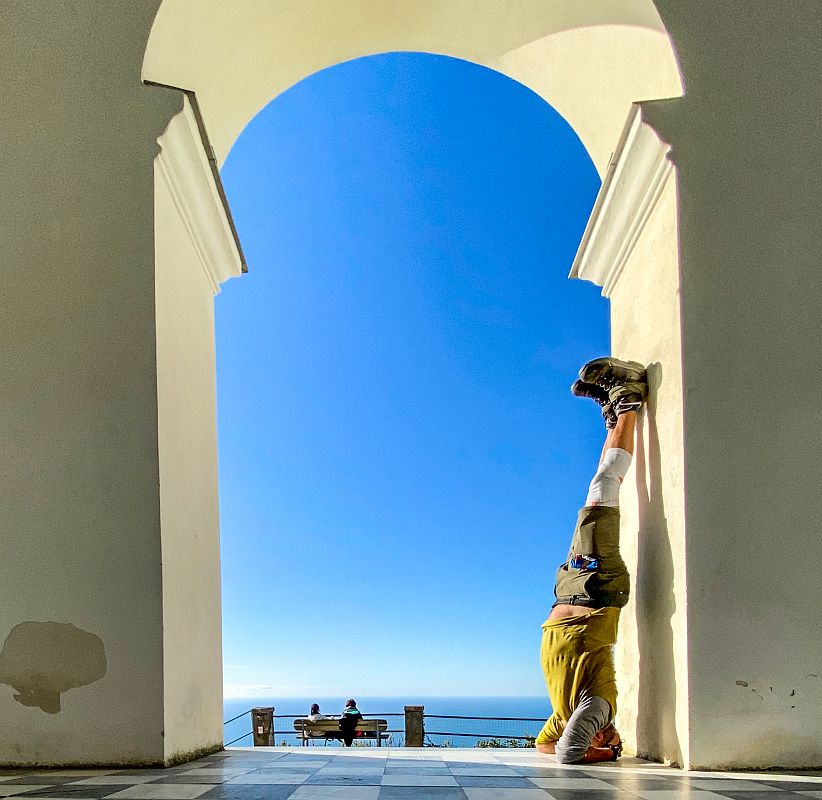
There is no “favorite way”.
I love being in nature, love those grassy paths along streams or on the beach. But I am also someone who likes to wander from one city to another city, to see art and culture, visit museums, concerts, look at architecture.
I really enjoy talking to people, but I also like to spend time alone.
The path that I am going down or on right now is the right one. There is no road where I said it was a disaster, I didn’t want to go that way, now I’m going to take the bus.
I definitely enjoy every single step that I take right now.
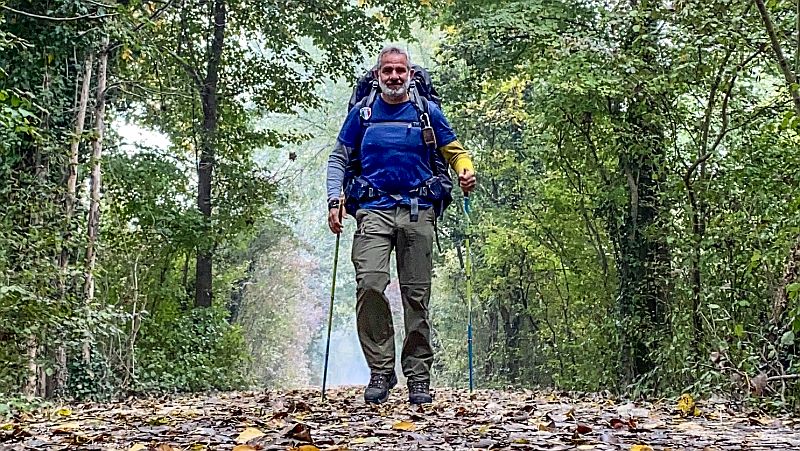
5. Hiking as you do, there is a lot of time to think! A lot of needs to be filled somehow. How do you keep your mind occupied?
I can deal with myself very well. I always have some thoughts that I indulge in and that carry me far in the silence.
Sometimes I make up stories, exciting criminal cases that I try to solve myself. I often find quite interesting things in the environment that I look at and find out about.
I talk to my girlfriend on the phone very often. When I’m not in a good mood, I distract myself with music, but that’s rare.
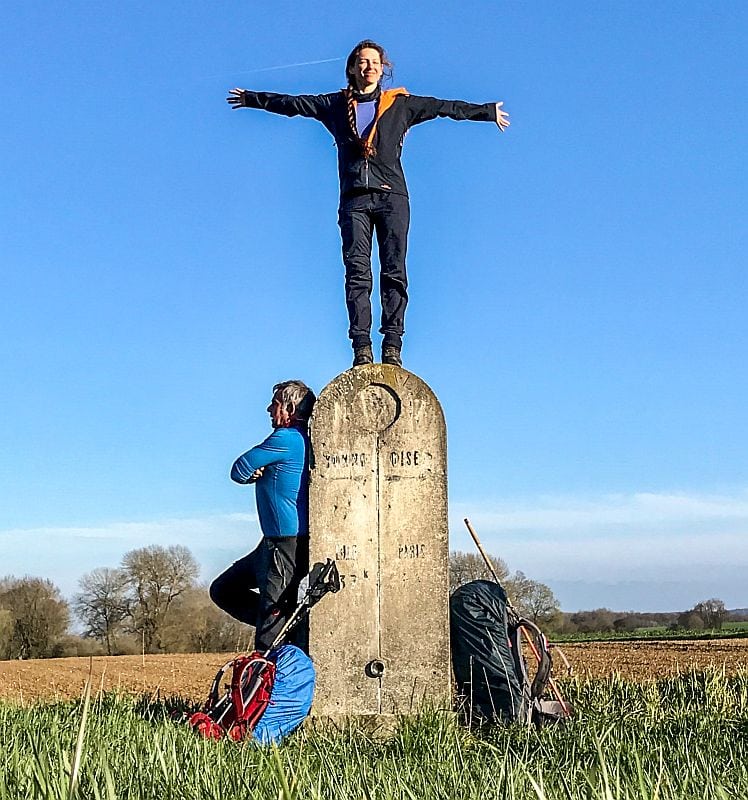
The most difficult moments for me are when it’s cold and everything is gray and bland and I have 30 km to go.
The weather weighs on my mood and makes the way very long.
Those are the moments when I distract myself with music or a podcast.
Really nice moments are when I meet people on the road, start a good conversation with them, we eat together or when someone comes to visit me.
6. The longer long-term travelers are on the road; the more everyday things can become, which can make it more challenging to stay motivated; the WOW factor may be no longer so intense.
Have you experienced this issue? What are you doing to stay tuned?
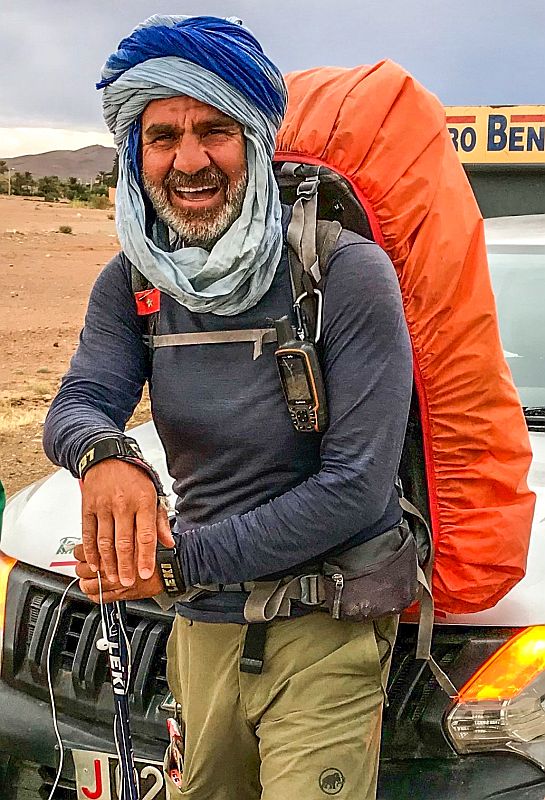
Of course, I am also familiar with these phases.
But after three days of rest in the vicinity of people, I get restless and have to travel on.
I then rediscover the happiness of being on the move and the joy of traveling, just by doing it, by walking.
It’s the movement that lifts my spirits again.
7. Can you tell us three of your favorite short stories from the trip.
Every day my path writes new stories and to choose 3 of them is not easy.
There was a Norwegian right at the beginning of the trip who overtook me in his car. He realized that I was about to freeze to death and saved me by driving me to a hotel.
Or the two Italian cyclists Otto and Giorgio, who also met me in Norway and gave me food as well as something to drink when I had nothing.
In Morocco I met Ayoub, a boy who herded sheep, and his uncle Choaib Khatiri, who donated 50 dirhams for the children in Africa. A sum that must have been 10% of his monthly income.
When I fell ill with severe diarrhea in Morocco, friends back home helped me to diagnose that I was suffering from amoebic dysentery and strangers to me at the time took me in while I was being treated.
These are people to whom I am still very much connected today.
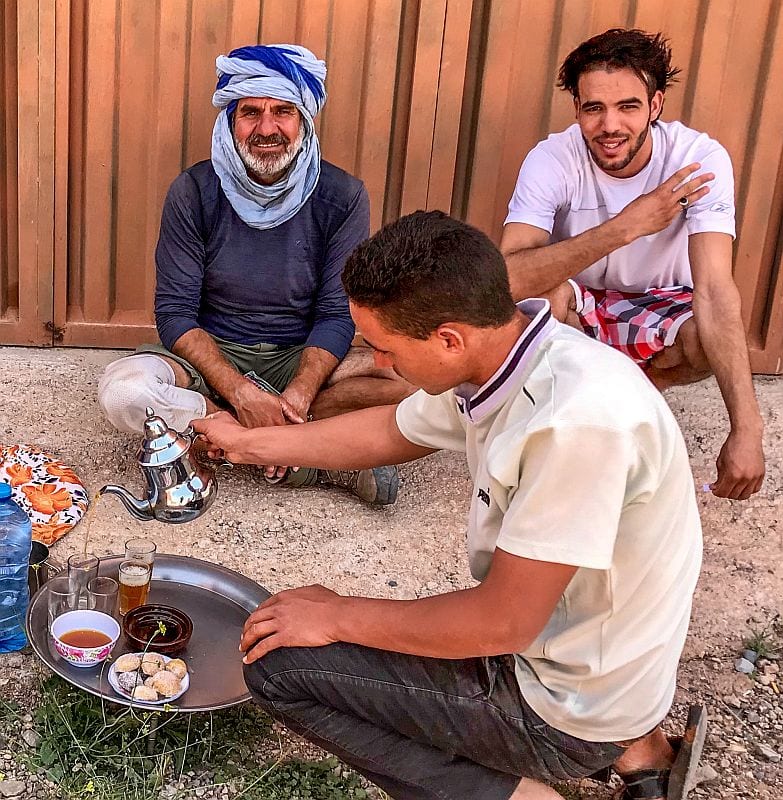
Much of what I experience shows the magnificence of people.
8. We know many people carry prejudices. You grew up in Iraq; I assume in Europe you are often mistaken for a foreigner, even though you are an Austrian citizen. Since 9/11 and with the more recent issues with refugees, Muslims are often confronted with negative prejudices.
Has this been part of your journey? How are people treating you on the road? Are you often invited home from the streets of Europe? Do people help you, or are they afraid of you? Are you finding people’s behavior toward you differs between regions?
A very political question and I think my experiences are not representative when I say that I hardly have anything to do with racist prejudice. I think it has something to do with my approach to life.
I do not focus on otherness, I do not insist on belonging to certain groups (religion, origin, etc.) because I do not define myself by this and therefore I do not offer a target.
I grew up being the different one, an outsider everywhere, which probably (out of self-protection) contributed to weakening my perception of this exclusion.
If I should come across something like racism, it will come to nothing as I do not register it. It is as if I were insulted in a language that I do not speak.
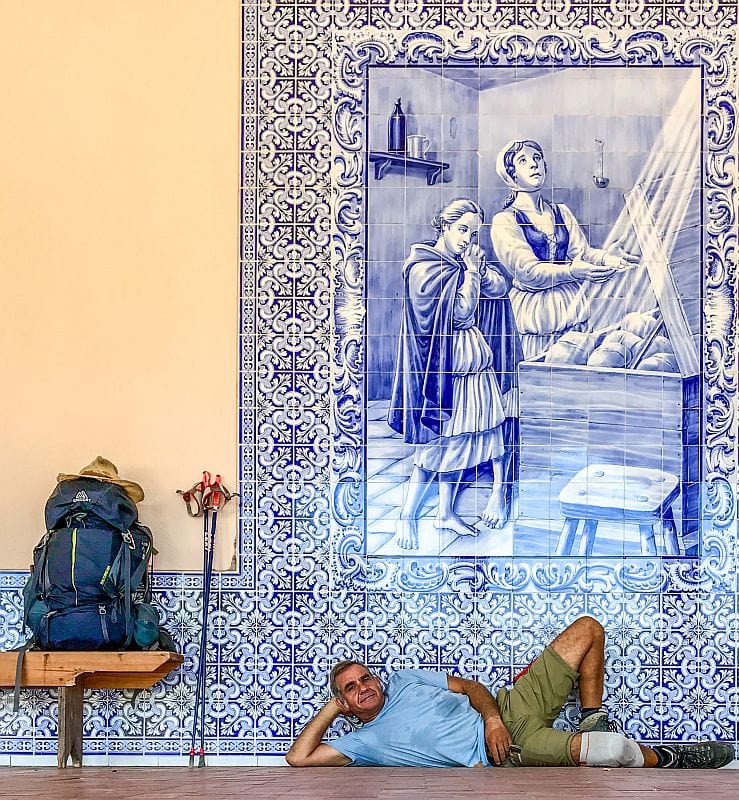
But for the second part of your question:
I experience a lot of helpfulness and a lot of interest on my way, everywhere.
But yes, there are regional differences. In Europe it is not customary to open the door to a stranger. One is more careful, more worried about protecting oneself. And that is even stronger in the north than in the south.
But even in Norway I was never refused help, but I would not have been let in just for a chat.
In the Arab world it is quite different: a stranger is very welcome because the culture in the East says that a guest is a gift from God.
This is not just about offers of help, but about all-out hospitality.
In addition to the north-south divide, there is also the poor-rich divide:
Poorer people are spontaneously more generous than rich people, presumably because they know what it is like to be needy. You can see that they recognize it more quickly.
But when wealthy people have realized that I don’t want to take anything away from them, then they are very generous.
But this requires more of a relationship than the spontaneous willingness of the poor to help.
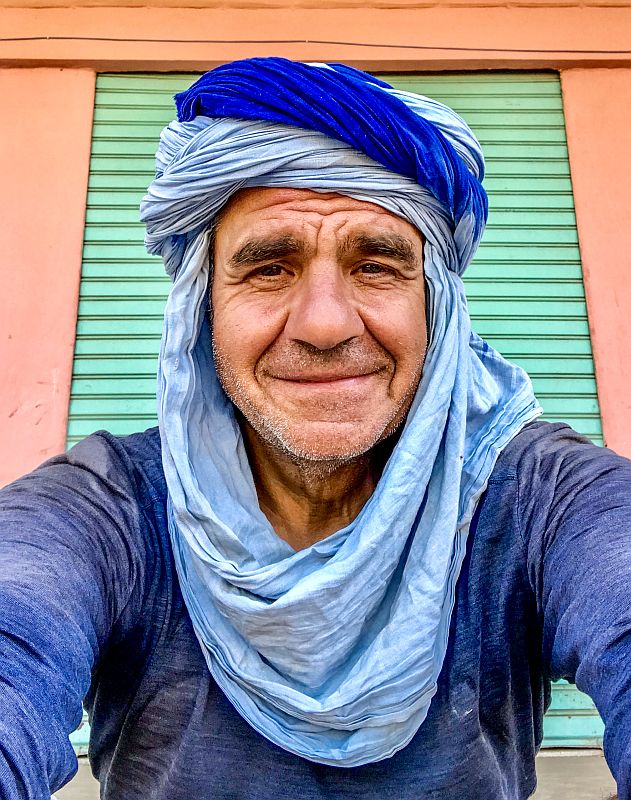
Are you looking forward to reach South Africa or has the journey become your life?
South Africa is actually only a distant point on the map, but an important one.
It is the goal of a journey that I would rather reach later than sooner, because the journey has become my life.
But still it is important to have a goal, otherwise I would lack the framework.
9. You were in Morocco for a long time. How did the people of Morocco receive you? Has the Muslim world continued to be a kind of home for you, even though Iraq and Morocco are far apart and even though you have lived in Austria for many decades?
Much rarer than asking about religion, people in Morocco asked about origin, and when they heard I was Iraqi, I was made incredibly welcome, because Iraqis are held in high esteem in Morocco.
There are at least two reasons for this: One is that the royal family, the founder of the Kingdom of Morocco, Moulai Idriss, came from what is now Iraq.
Furthermore, the political relations between the Iraq under Saddam Hussein and then Morocco under King Hassan V were very cooperative.
Iraq was a rich country compared to Morocco at that time and there was a lot of economic aid as well as support for the Moroccan people. People liked the Iraqis and still like them today.
You're right, the Iraqi dialect and the Moroccan dialect are very different. So much so that we wouldn't understand each other. But similar to other regional dialects, we also make do with a common language, Standard Arabic, which is taught in all schools.
Of course, the fact that I am a Muslim still made things easier, and I continue to feel a close connection to the Muslim world because I grew up in this culture and know it quite well.
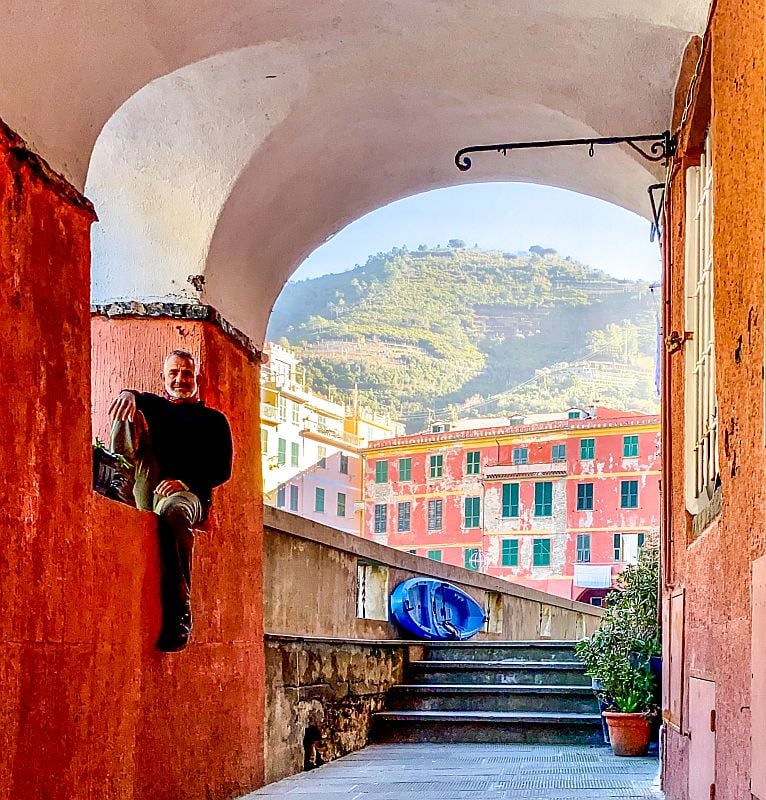
10. Are you scared sometimes? If so, by what?
Sure, I’m scared. Above all of myself, of my arrogance. I have a strong tendency to get very close to the limits and a desire to test myself, the thrill of it. I do sometimes find it scary because it has put me in dangerous situations.
When I started out, I had a big fear of heights, but I didn’t want to accept that for myself and I walked to every cliff edge there was.
I sought out heights to prove to myself that I could do it, because I didn’t want to let the fear limit me. I have since gotten a pretty good handle on my fear of heights.
By walking, I have learned how to help myself in various difficult situations and I know my limits.
This has given me a lot of security, reduced my fear and greatly strengthened the confidence I have in myself.
But walking has also made me realize how important freedom and movement are to me, and of course thoughts of getting older or accidents that limit mobility then come to mind.
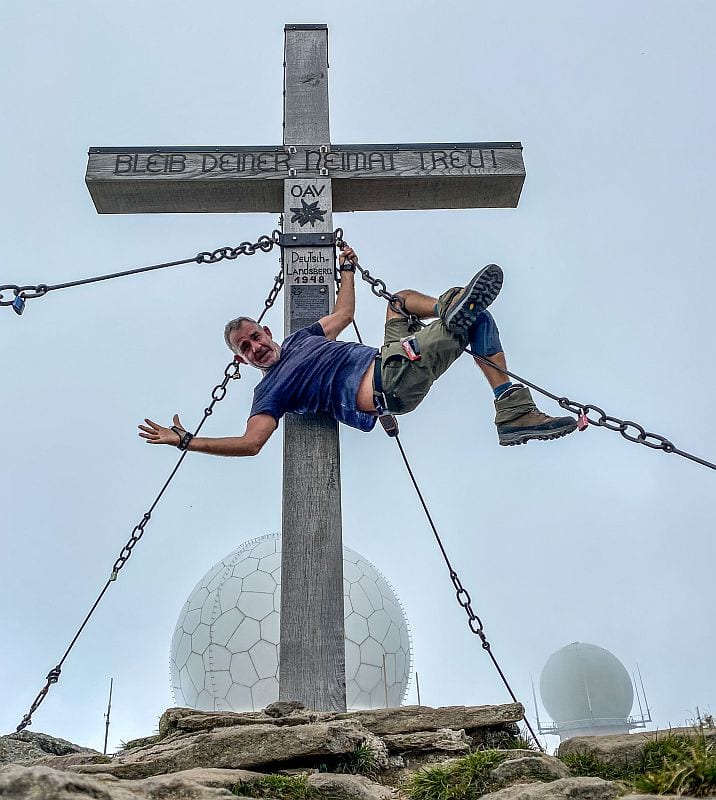
Especially now in the Corona period, I have noticed that this confinement is unbearable for me. And there I feel a fear of being dependent, a certain lack of freedom.
11. What do you like to cook on the go? And indeed you must have to eat a lot.
Yes, that’s true. I am always hungry. But I’m not a cook and I don’t have a stove with me either. My experience is that I can always find something to eat somewhere and I am not demanding when it comes to the choice.
Except for bread: bread is my main food, plus a canned fish, that’s enough for me when I’m out and about in nature.
I can’t carry that much with me. But when I’m in civilization, I eat a lot and make up for it.
I always have an emergency can with me, it’s only for emergencies and usually won’t be touched.
When it’s hot, I need a lot of water, not just to drink, but also to cool down.
I cannot carry it with me and so I am always dependent on outside supplies. So far it has always worked – people are very helpful and in warm areas they often reach water out of the car without asking.
They just know that I need it.
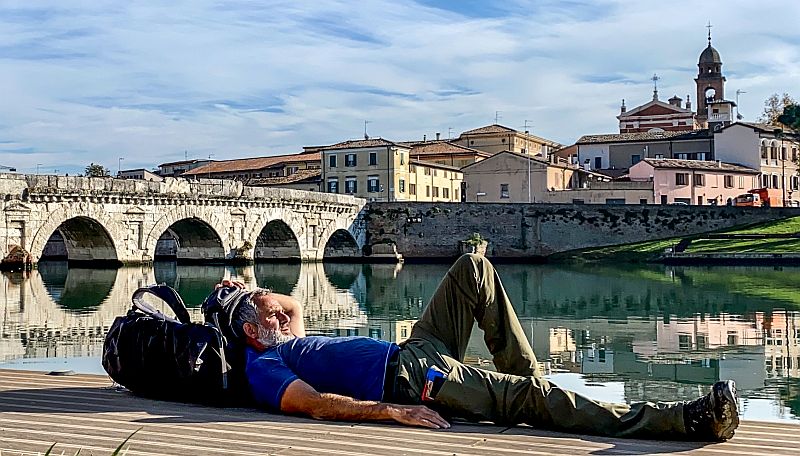
12. Who would you like to sit down with at a table and chat with for a while?
With my girlfriend. I miss her a lot during my trip. But also other friends from near and far all, preferably many together at one table, that would be wonderful.
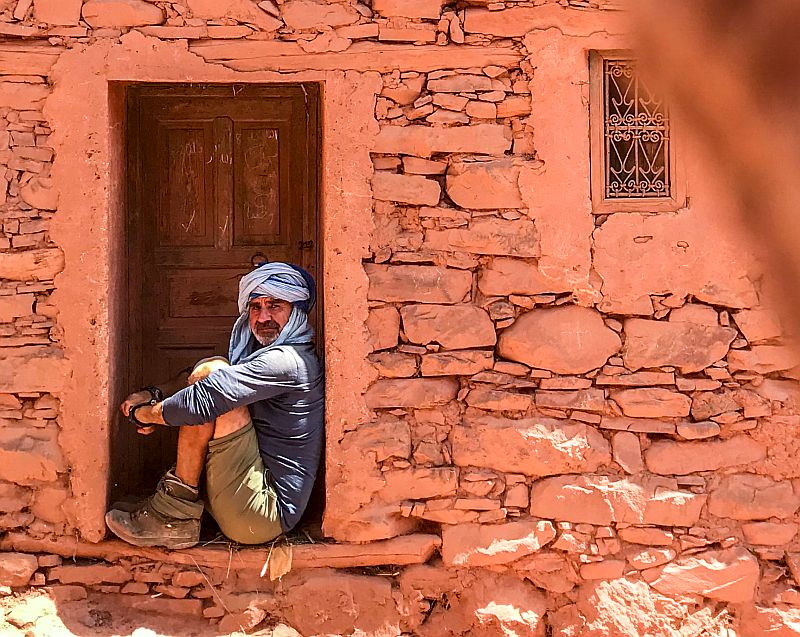
13. When you are invited, how do you behave? What are you giving back? Are you sometimes unsure if you behaved correctly?
I am a very polite, appreciative person. When I am invited, I usually bring a present (flowers, sweets, dates or sometimes something from my personal items).
I know a lot about many cultures because I used to travel a lot for work. But when I am a stranger somewhere, I am reluctant, I see how the others do it and adapt myself.
This is how I grew up in the Orient. Everything is a give and take, the guest also has duties.
I don’t have this hubris to want to dominate anything with my ideas. This is totally alien to me. Whenever I am invited to dinner somewhere, I eat everything that is offered to me, even if I don’t like it.
I would never reject it. That is my general stance.
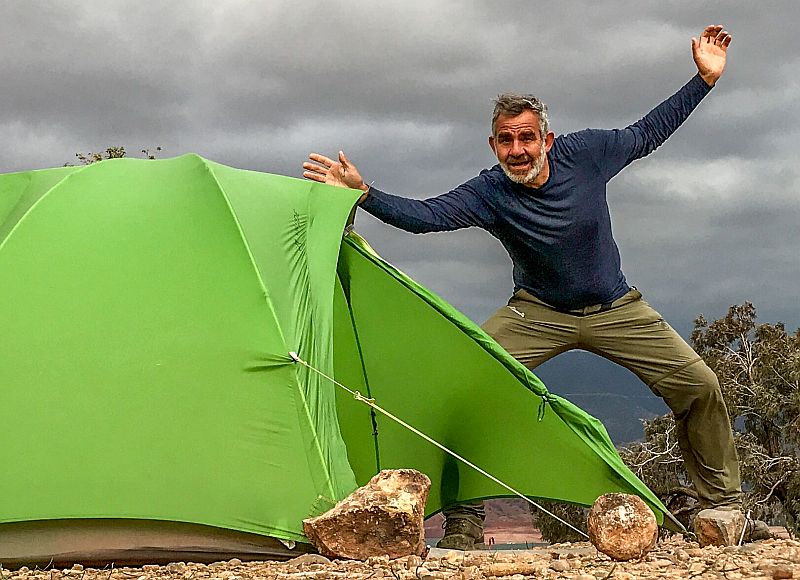
14. What do you miss the most?
Warmth and physical closeness. I get to know a lot of people, but I have nothing familiar along the way, I have no one next to me, no person I can hug. That’s what I miss.
The skin and the physical closeness to my girlfriend. Sometimes I go to the hairdresser, then I get some human warmth from the contact with my head.
Then most of the time I talk to my girlfriend on the phone and that gives me a lot of comfort, that’s my home. Fortunately, there are also video phone calls.
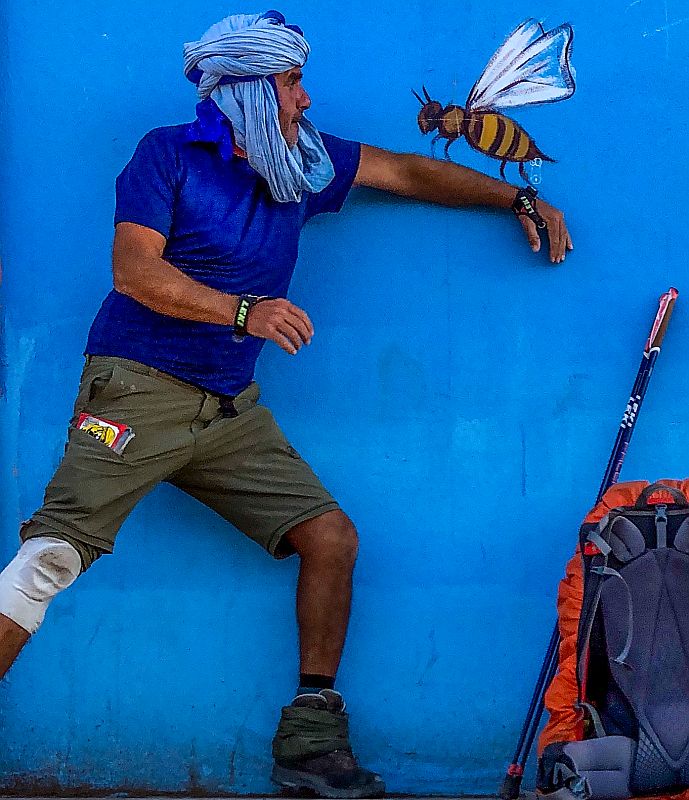
Why my girlfriend doesn’t join me?
Years of wandering without a permanent home is not for everyone and I accept that.
15. How are you financing your trip?
Before I started, I had saved some money in order to be independent for the first year. At this point, I rely on donations to be able to continue my path.
I produce a calendar every year that I sell and I write beautiful postcards from the path as a thanks for a donation.
Recently, I have also joined Patreon, where interested people can support my path on a one-time or monthly basis.
I give 20% of my income directly to “Doctor Clown Tanzania”. The longer I am on the road and the more donations I can collect, the more money I can donate to the Tanzanian cause. They now eagerly await the donations that they receive and that come from my trip.
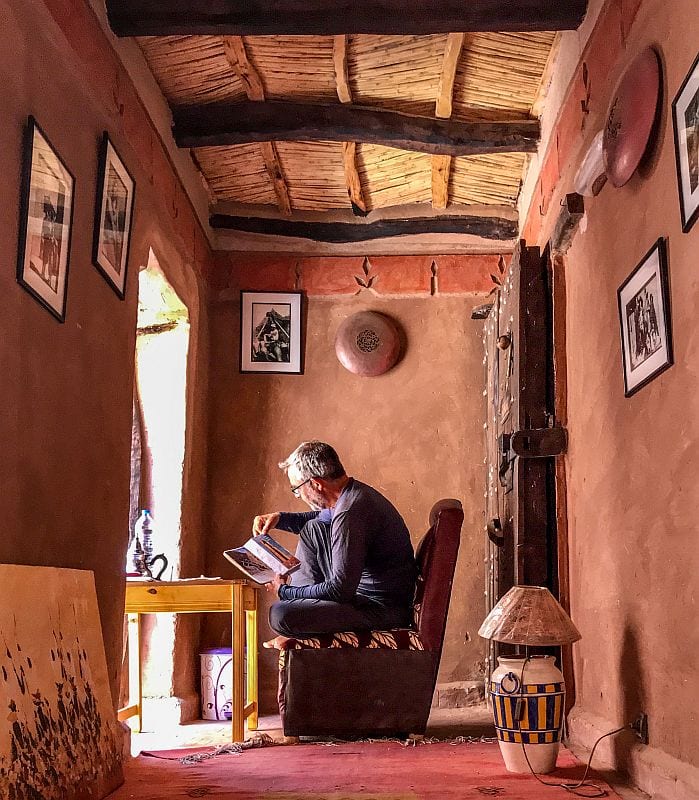
Here you can accompany and support Thair Abud on his long journey:
If you have any questions for Thair, leave a comment. I’m sure he’ll be happy about it. Thanks very much.
Great trip, right? Maybe your friends are also interested in this interview? Sharing doesn’t hurt and doesn’t cost anything, and it helps me expand my reach and get Thair a few new followers! A heartfelt thank you 🙂
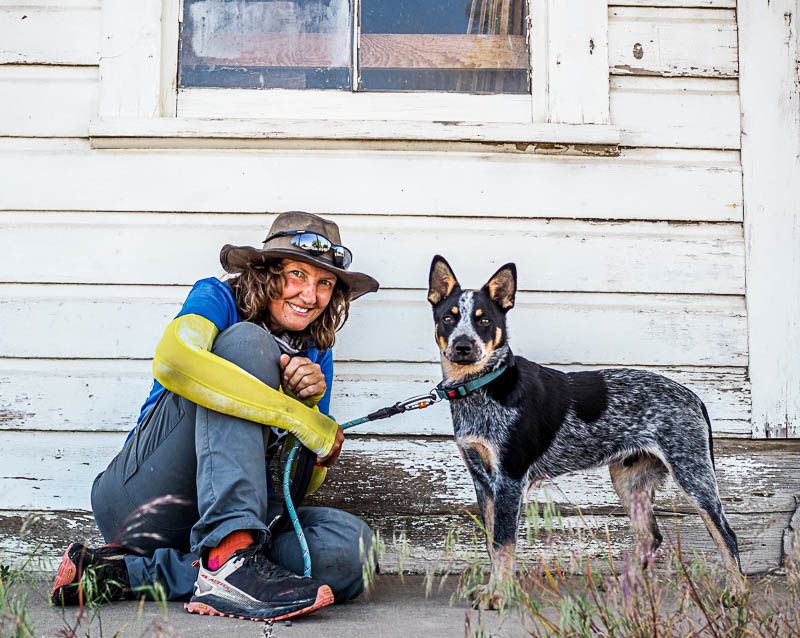
This blog finances our lives
I’ve been posting pictures, stories and info’s for free for many years.
Butch and I live very frugally, but we also need money to provide you with news.
If you sponsor us with an amount of your choice you will get a photo postcard from the road! Thank you very much!
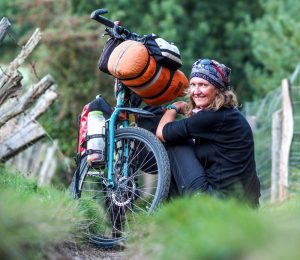


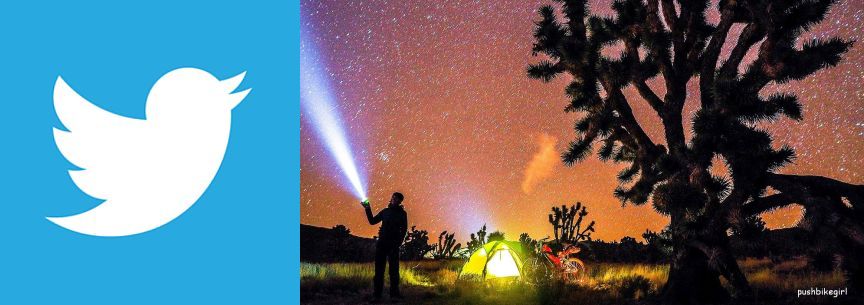

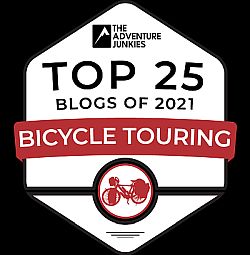
Isn’t parts of the west coast of the Republic of Ireland the furthest West Point of Europe?
Hi Dexey,
Cabo da Roca is westernmost point of MAINLAND Europe! best regards from Sicily Thair
Hi, I’m Hannes from South Africa and I’m planning on walking from South Africa to Europe to raise awareness for arthritis, do you have any tips for me wrt to getting Visa’s etc
That was a great interview. Fascinating man. I love the fact that he’s from Mesopotamia, and sees himself as a world citizen ( although he didn’t expressly say that ).
Hi David, thank you so much! Please don’t forget my German mother 😉
Best regards from Sicily
You should join Heike, the German walker, who has been on the roads for years as well. It seems once you get the travel bug nothing seems to be able to change it. Heike now has a dog with her. So you should take a nice cat with you. Cats are good companions, as they have been known to get along with nomads as long as they get a bit to eat and have the comfort from your company.
Enjoy your trip.
Hi Martha, it will be a pleasure for me to join Heike, but now I have to reach south Africa 😃 best regards Thair
A great interview. Thank you.
Thanks for reading Ian……
🙂
Thank you 😃
😉
I am impressed for your positive energy and courage in your amazing mission . I am happy and honored becouse You found thé Time during your trip for visit my Fronteversismo paintings exhibition at National Museum of Matera.
I will post in my website in news thé your signature ✍️ & stiker and also thé spécial Darwin that i did for You and for to share with many follower aroud thé world for a litle contribute & support You in your amazing mission . I wishing you all thé best . Giuseppe Siniscalchi ( GIUS ART NAME ) .
Dear Guiseppe,
Many thanks and it was a pleasure to be at the Museen and I hope to meet you during the next days in Taranto.
Happy new year 🌹🎉🥂
Hello Thair Abud,
I just stumbled upon this interview by strolling Pushbikegirl FB page.
Your words have gave me a push! I am a longhaul cyclist traveler. Your words had a strong sense of being in me. Big thanks.
I am presently in Morocco. Do you have a few suggestions as a solo woman in a musulman area or even in Africa? I would like to achieve the wisdom that I need. Because my attention is to ride through almost of Africa. I know I will achieve it on my path. Just want to make less mistakes. Thank for sharing.
Hello Jeannette,
thanks for your comment. I will pass it on to Thair and I am sure he can give you some advice.
In the meantime, if you like I rode my bike thru West Africa…maybe you can find some info in my articles.
Best greetings Heike
The journey starts with Morocco
https://pushbikegirl.com/nr-82-bicycle-touring-africa-morocco-i-police-escort-amazing-hospitality-and-great-landscapes/?lang=en
and ends in
https://pushbikegirl.com/no-95-bicycle-touring-ghana-time-for-a-change-of-direction/?lang=en
Inspiring.